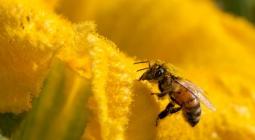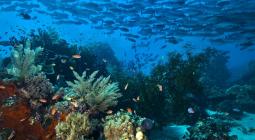Losing Up To A Million Species Will Create ‘Danger Zone’ For Humanity: Un Commission.
The Earth is on track to lose up to a million species, many of them within decades, a rate of extinction that represents a danger zone for humanity, according to a leaked draft of a global biodiversity assessment due to be released today.
“The 1,800-page study will show people living today, as well as wildlife and future generations, are at risk unless urgent action is taken to reverse the loss of plants, insects, and other creatures on which humanity depends for food, pollination, clean water, and a stable climate,” The Guardian reports, citing the three-year study by the Intergovernmental Science-Policy Platform on Biodiversity and Ecosystem Services (IPBES). Scientists and government representatives met this past weekend to finalize the wording of the summary for policy-makers ahead of its release.
“There is no question we are losing biodiversity at a truly unsustainable rate that will affect human well-being, both for current and future generations,” said IPBES Chair Robert Watson. “We are in trouble if we don’t act, but there are a range of actions that can be taken to protect nature and meet human goals for health and development.”
“All of our ecosystems are in trouble,” agreed Mike Barrett, executive director of conservation and science at the World Wide Fund for Nature (WWF). “This is the most comprehensive report on the state of the environment. It irrefutably confirms that nature is in steep decline,” underscoring three overlapping challenges: climate, nature, and food production.
“There is no time to despair,” he added, pointing to two major nature and climate conferences before the end of 2020 where countries will have a chance to chart a different course. “We should be hopeful that we have a window of opportunity to do something about it over these two years.”
The Guardian says the report’s authors “hope the first global assessment of biodiversity in almost 15 years will push the nature crisis into the global spotlight in the same way climate breakdown has surged up the political agenda since the 1.5°C report last year by the UN Intergovernmental Panel on Climate Change.”
Like the IPCC release, “the report is a compilation of reams of academic studies, in this case on subjects ranging from ocean plankton and subterranean bacteria to honey bees and Amazonian botany. Following previous findings on the decimation of wildlife, the overview of the state of the world’s nature is expected to provide evidence that the world is facing a sixth wave of extinction.”
And “unlike the past five, this one is human-driven.”
The leaked draft says three-quarters of the Earth’s surface has been “severely altered”, with the “conversion of forests, wetlands, and other wild landscapes into ploughed fields, dam reservoirs, and concrete cities,” The Guardian notes. Watson, who’s served as chair of the IPCC as well as IPBES, “said the authors have learned fromattribution science, which has transformed the debate on the climate crisis by showing how much more likely hurricanes, droughts, and floods have become as a result of global heating.”
“We need to appeal not just to environment ministers, but to those in charge of agriculture, transport, and energy, because they are the ones responsible for the drivers of biodiversity loss,” Watson said.
May 2019
THE ENERGY MIX




